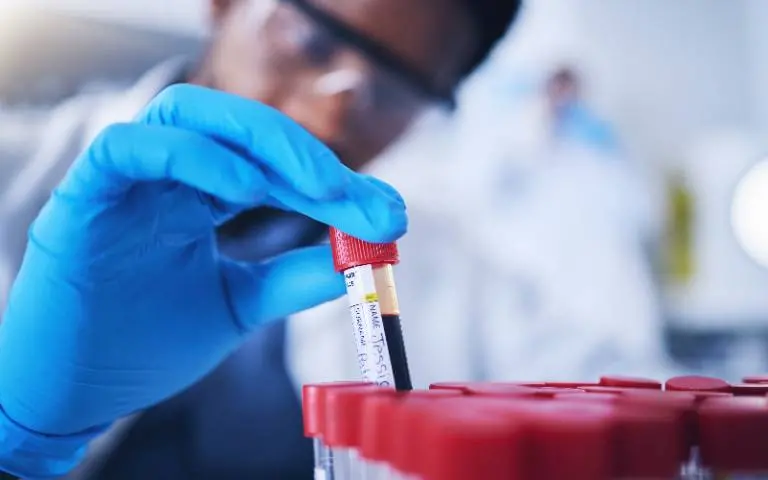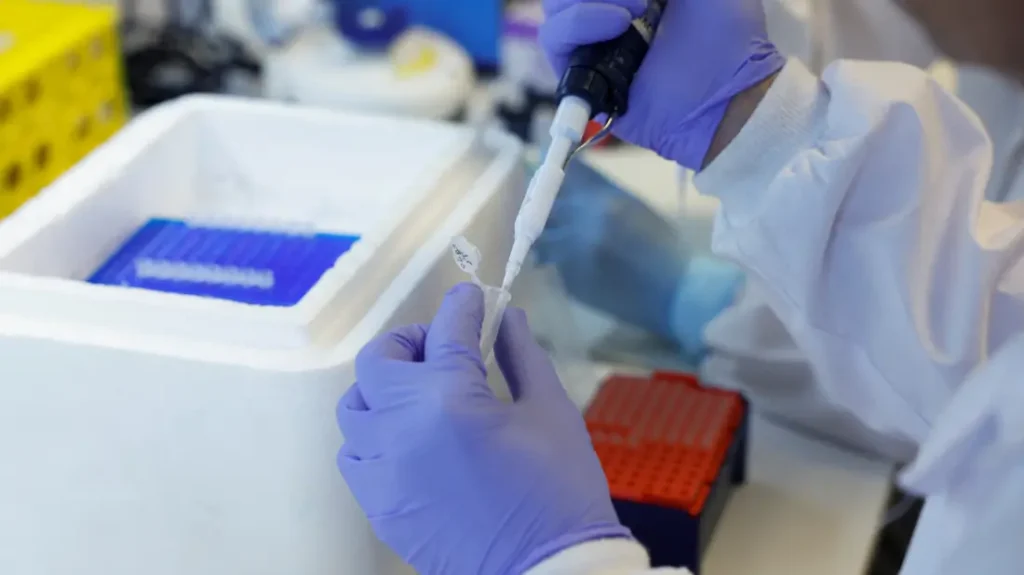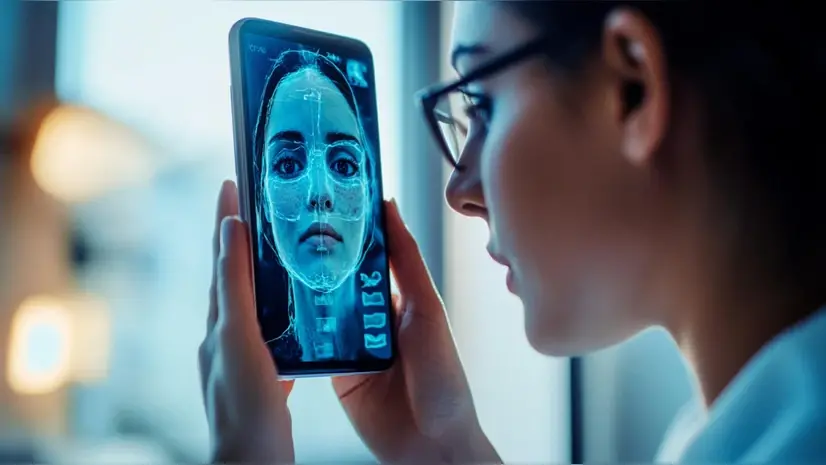AI predict biological age blood sample by analyzing biomarkers like proteins, metabolites, and genetic data. This approach reveals true cellular aging beyond chronological years. With precise insights, AI helps individuals track health, guide lifestyle changes, and prevent age-related diseases through personalized care and longevity strategies.
ManlyZine.com
Artificial intelligence is revolutionizing healthcare by enabling doctors and researchers to measure aging in new ways. Through advanced machine learning, AI predict biological age blood sample with remarkable accuracy. Unlike chronological age, this biological measure reflects your body’s real condition, helping you optimize health and longevity.
Aging is a universal experience, yet how we perceive and manage it can vary greatly. While chronological age is merely a count of years, biological age—how well our bodies function relative to our actual years—can offer deeper insights into our health. Recent advancements in artificial intelligence (AI) have paved the way for innovative methods to measure biological age, enabling more personalized health management. This article explores the groundbreaking developments in AI models that predict biological age using just a few drops of blood, providing a roadmap for understanding our aging process.
Table of Contents
The Concept of Biological Age
Biological age is a reflection of the physiological state of our body compared to our chronological age. It takes into account various factors such as genetics, lifestyle, and environmental influences.
Understanding Biological vs. Chronological Age
- Chronological Age: This is simply the number of years a person has lived. It does not account for how well the body is functioning.
- Biological Age: This term refers to the condition of an individual’s body systems and how they compare to the average for their chronological age. Biological age can vary significantly among individuals of the same chronological age.
Importance of Measuring Biological Age
Understanding biological age is crucial for several reasons:
- Health Management: It allows individuals to identify health risks and take preventive measures.
- Tailored Interventions: By knowing one’s biological age, healthcare providers can create personalized health plans.
- Aging Research: Studying biological age can lead to insights into age-related diseases and overall healthspan.
The Role of Hormones in Aging
Hormones play a pivotal role in regulating various bodily functions, and their levels can significantly influence biological age.
Hormonal Impact on Health
- Steroid Hormones: These hormones, including cortisol and estrogen, are crucial for metabolism, immune function, and stress response. They can indicate how well the body is aging.
- Cortisol and Stress: Elevated cortisol levels, often linked to chronic stress, have been associated with accelerated biological aging.
Research Insights
Recent studies have shown that hormonal imbalances can lead to various health issues, making it essential to monitor these levels as part of assessing biological age.
AI Models in Biological Age Prediction
The integration of AI into biological age prediction marks a significant advancement in health technology.
The Development of AI Models
Researchers have developed AI models that analyze hormonal levels and other biomarkers to estimate biological age. For instance, a team from Osaka University created an AI model that assesses 22 key steroid hormones from just five drops of blood.
Methodology Behind AI Models
- Data Analysis: The AI uses deep neural networks (DNN) to analyze complex interactions between steroid levels rather than just their absolute values.
- Biological Interpretability: This approach allows for a more nuanced understanding of how hormonal ratios contribute to aging.
Advantages of AI in Age Prediction
- Personalization: By focusing on individual hormonal profiles, AI can provide tailored health insights.
- Early Detection: This technology can help identify age-related health risks before they manifest into serious conditions.
The Science Behind the Blood Test

The blood test used in these AI models is a simple yet powerful tool for assessing biological age.
How the Test Works
- Sample Collection: Only five drops of blood are needed, making it a non-invasive and convenient option.
- Steroid Analysis: The test analyzes the levels of various steroid hormones and their ratios, providing a comprehensive view of an individual’s hormonal health.
Key Findings from Research
Studies indicate that discrepancies between biological and chronological age can widen as individuals age, suggesting that monitoring biological age could be a key factor in health management.
Implications for Health Management
The ability to predict biological age through AI has profound implications for personal health and wellness.
Personalized Health Plans
With accurate biological age assessments, healthcare providers can develop customized plans that address specific health risks associated with aging.
Lifestyle Modifications
Understanding one’s biological age can encourage individuals to make healthier lifestyle choices, such as:
- Diet Adjustments: Tailoring nutrition based on individual health needs.
- Exercise Routines: Developing fitness plans that cater to personal health conditions.
Preventive Healthcare
The insights gained from biological age predictions can lead to proactive measures in healthcare, potentially reducing the incidence of age-related diseases.
The Impact of Lifestyle Choices on Aging
Lifestyle factors significantly influence biological age, and understanding this relationship is crucial.
Key Lifestyle Factors
- Diet: A balanced diet rich in nutrients can help maintain hormonal balance and overall health.
- Physical Activity: Regular exercise is essential for maintaining a healthy biological age.
- Stress Management: Techniques such as mindfulness and meditation can help lower cortisol levels, thereby potentially reducing biological age.
Research Findings
Studies have shown that individuals who adopt healthier lifestyles tend to have lower biological ages than their chronological counterparts, emphasizing the importance of lifestyle in the aging process.
Future Directions in Biological Age Research
The field of biological age research is rapidly evolving, with numerous possibilities on the horizon.
Expanding the Dataset
Future studies aim to include larger and more diverse populations to validate and refine AI models for biological age prediction.
Incorporating Additional Biomarkers
Researchers are exploring the integration of other biological markers, such as genetic and metabolic factors, to enhance the accuracy of biological age assessments.
Longitudinal Studies
Conducting long-term studies will help in understanding how biological age changes over time and its correlation with health outcomes.
Ethical Considerations in AI and Aging

As with any emerging technology, ethical considerations must be addressed in the application of AI in biological age prediction.
Data Privacy
Ensuring the privacy and security of personal health data is paramount, especially when dealing with sensitive information such as hormonal levels.
Access to Technology
There is a need to ensure equitable access to these advanced health technologies, preventing disparities in health management based on socioeconomic status.
Informed Consent
Patients should be fully informed about how their data will be used and the implications of biological age assessments.
Real-World Applications of AI in Aging
The practical applications of AI in predicting biological age are already being explored in various sectors.
Healthcare Settings
Hospitals and clinics are beginning to implement AI models to enhance patient assessments and tailor treatment plans accordingly.
Wellness Programs
Fitness and wellness centers are utilizing biological age assessments to create personalized fitness plans that align with clients’ health needs.
Research Institutions
Academic and research institutions are adopting these technologies to further explore the implications of biological age on public health.
Conclusion: Embracing the Future of Aging
The advent of AI-powered biological age prediction represents a transformative shift in how we approach aging and health management. By providing a clearer picture of our biological age, these advancements empower individuals to take control of their health and make informed decisions about their lifestyles. As research continues to evolve, the potential for personalized health interventions and preventive care becomes increasingly attainable, marking a new era in the quest for longevity and well-being.
In summary, the integration of AI in biological age prediction not only enhances our understanding of aging but also offers practical solutions for health management. By embracing these innovations, we can pave the way for a healthier, more vibrant future.

FAQs
How does AI predict biological age from a blood sample?
AI analyzes biomarkers in your blood, such as proteins, metabolites, and gene expression, to estimate your biological age. These factors indicate how your body is aging internally, rather than just your chronological age.
How accurate is AI in determining biological age?
AI models trained on large datasets can predict biological age with high accuracy, often within a few years. However, results can vary based on the quality of data, lifestyle factors, and individual genetic differences.
Why is biological age important?
Biological age reflects your overall health and aging process more accurately than chronological age. It can help identify risks for age-related diseases and guide personalized health and lifestyle recommendations.
Can I lower my biological age?
Yes, lifestyle changes such as a healthy diet, regular exercise, stress management, and proper sleep can improve biological markers and potentially lower your biological age over time.
Is AI-based biological age prediction available for personal use?
Some companies and research institutions offer AI-driven biological age testing through blood sample analysis. However, availability may vary, and it’s best to consult healthcare professionals for interpretation and guidance.




